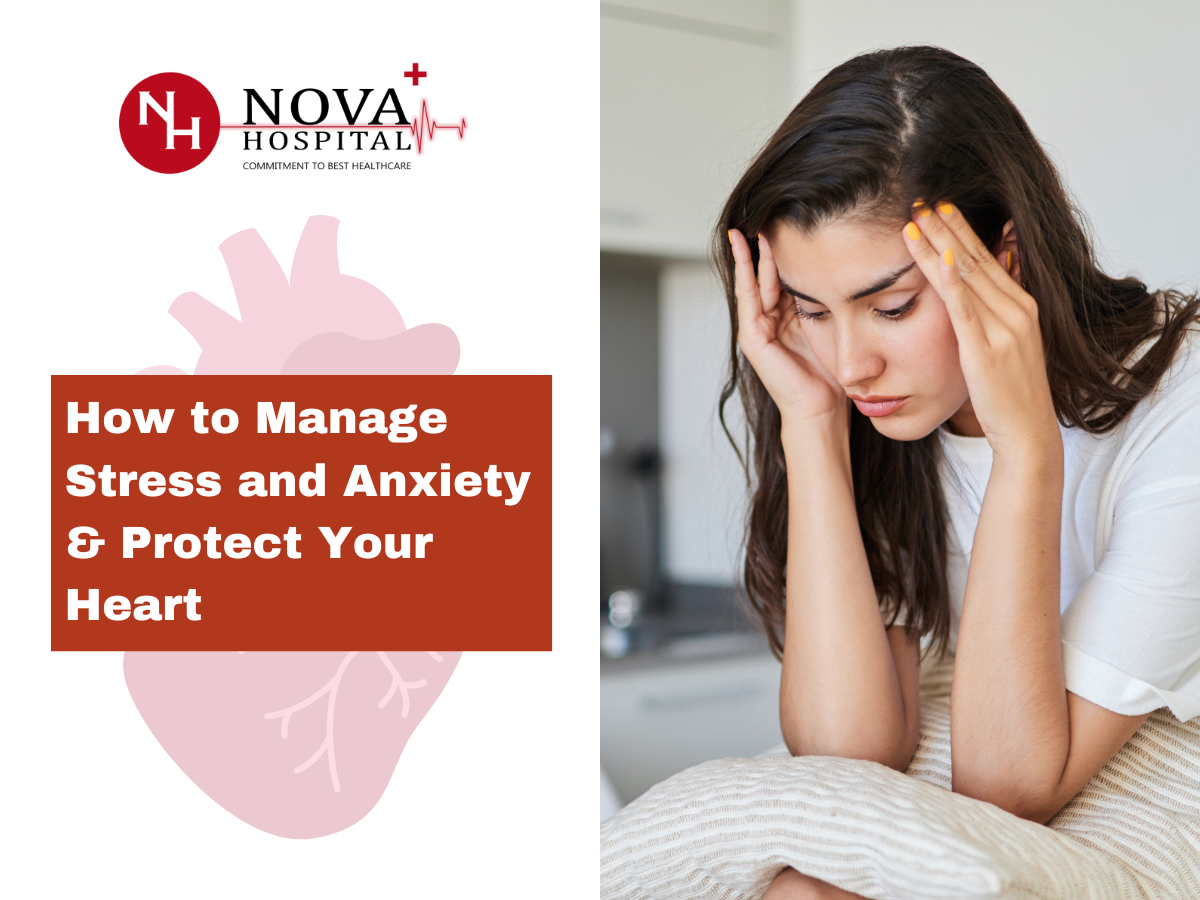How to Manage Stress and Anxiety & Protect Your Heart
Introduction
In today’s fast-paced world, stress and anxiety have become increasingly common. The pressures of work, personal life, and various external factors can take a toll on our mental and physical well-being. Moreover, prolonged exposure to stress and anxiety can negatively impact our heart health. Therefore, it is crucial to understand effective strategies to manage stress and anxiety while protecting our hearts.
Understanding Stress and Anxiety
Stress is a natural response to demanding situations. It can be triggered by various factors, such as work deadlines, financial difficulties, or personal conflicts. There are two main types of stress: acute stress, which is short-term and typically occurs in response to a specific event, and chronic stress, which persists over an extended period.
Anxiety, on the other hand, is characterized by persistent worry, fear, or unease. It can manifest in different forms, including Generalized Anxiety Disorder (GAD), Panic Disorder, Social Anxiety Disorder, and Post-Traumatic Stress Disorder (PTSD). Understanding the nature of stress and anxiety is essential in effectively managing them.
Impact of Stress and Anxiety on the Heart
Stress and anxiety can have a significant impact on our heart health. When we experience stress, our bodies release stress hormones like cortisol and adrenaline, which can increase blood pressure and heart rate. Prolonged exposure to stress can lead to chronic inflammation, weaken the immune system, and contribute to the development of cardiovascular conditions.
Likewise, anxiety can negatively affect heart health. People with anxiety disorders are at a higher risk of developing heart disease, as anxiety symptoms can lead to elevated blood pressure and heart rate. The constant activation of the body’s stress response system can also contribute to the development of coronary artery disease, heart attacks, and strokes.
Managing Stress and Anxiety
Recognizing and acknowledging stress and anxiety is the first step toward managing them effectively. Self-assessment and identifying triggers can help individuals gain insight into their stressors and take necessary action. Several stress and anxiety management techniques can be incorporated into daily life to alleviate their impact.
- Deep breathing exercises are simple yet effective techniques to reduce stress and anxiety. By taking slow, deep breaths and focusing on the breath, individuals can activate the body’s relaxation response and promote a sense of calm. Progressive muscle relaxation involves tensing and releasing different muscle groups to release physical tension and promote relaxation.
- Journaling and expressive writing can serve as therapeutic outlets for emotions and thoughts. By putting pen to paper, individuals can gain clarity, process their feelings, and reduce stress. Engaging in hobbies and leisure activities that bring joy and relaxation can also help distract the mind from stressors and promote overall well-being.
- Time management and prioritization are essential for stress and anxiety management. Setting realistic goals and breaking them down into smaller, manageable tasks can reduce feelings of overwhelm. Positive self-talk involves replacing negative thoughts with positive affirmations, promoting a more optimistic mindset.
Lifestyle Changes for a Healthy Heart
In addition to stress and anxiety management techniques, making certain lifestyle changes can significantly contribute to heart health. Regular physical exercise is a powerful tool for stress reduction and cardiovascular well-being. Incorporating cardiovascular exercises like walking, running, or cycling, as well as strength training, can improve heart health and overall fitness.
- Practicing mindfulness and meditation can help individuals cultivate a sense of calm and reduce stress and anxiety. Mindfulness techniques involve being fully present at the moment and observing thoughts and sensations without judgment. Meditation practices, such as focusing on the breath or repeating a mantra, can promote relaxation and mental clarity.
- Seeking support is vital when dealing with stress and anxiety. Professional help from therapists or counselors can provide guidance and techniques tailored to individual needs. Support groups or talking to trusted friends and family members can also offer valuable emotional support and a sense of connection.
- A heart-healthy diet plays a crucial role in maintaining cardiovascular well-being and managing stress and anxiety. A balanced nutrition plan that includes plenty of fruits, vegetables, whole grains, and lean proteins can provide essential nutrients for optimal heart health. Reducing salt intake, increasing fiber consumption, and avoiding trans fats can further support heart health.
- Adequate sleep is essential for stress and anxiety management. Establishing a bedtime routine, creating a restful sleep environment, and prioritizing sleep hygiene can promote quality sleep and rejuvenation. Avoiding unhealthy coping mechanisms such as substance abuse, excessive alcohol consumption, smoking, and tobacco use is crucial for both stress management and heart health.
Taking time for self-care is vital in reducing stress and anxiety. Engaging in activities that bring joy and relaxation, such as hobbies, reading, or spending time in nature, can recharge the mind and body. Prioritizing relaxation, pampering oneself, and practicing self-compassion contribute to overall well-being.
Conclusion
In conclusion, stress and anxiety can significantly impact our heart health. By understanding the causes and effects of stress and anxiety, as well as implementing effective management techniques and making lifestyle changes, we can protect our hearts and improve our overall well-being. It is crucial to prioritize self-care, seek support when needed, and make healthy choices to maintain a healthy heart.

